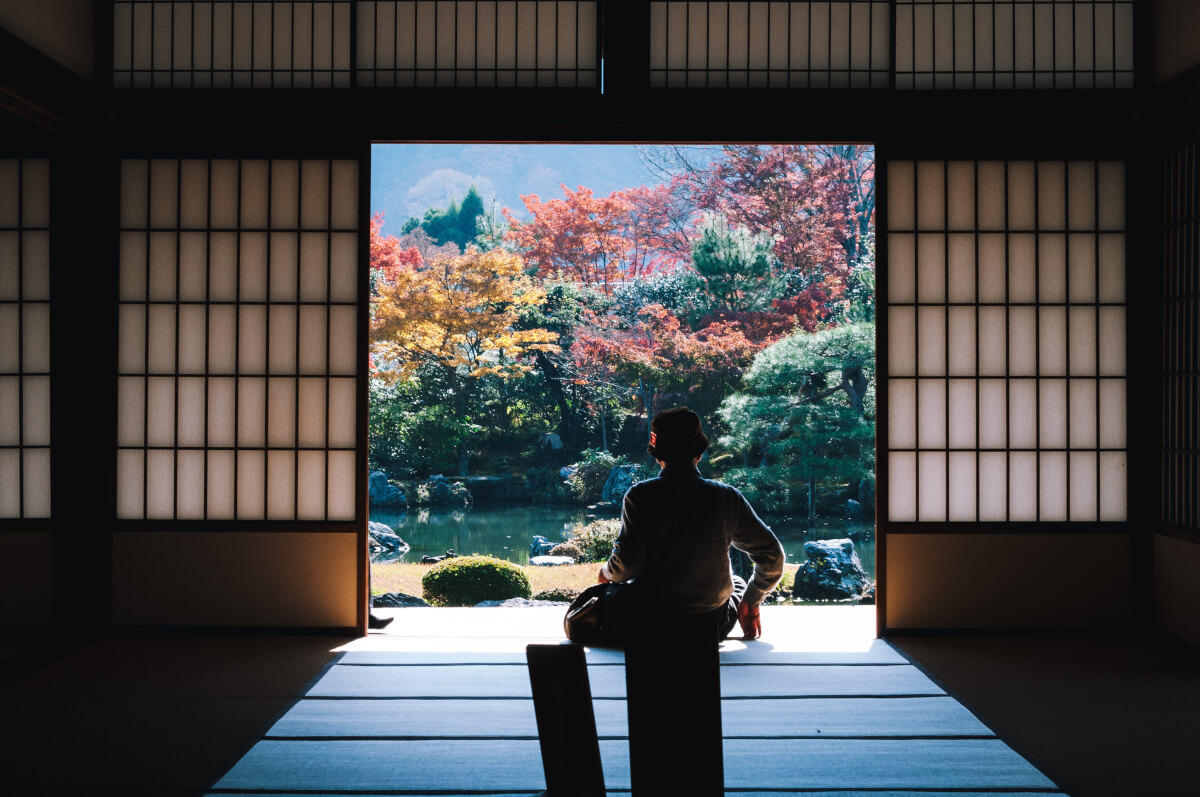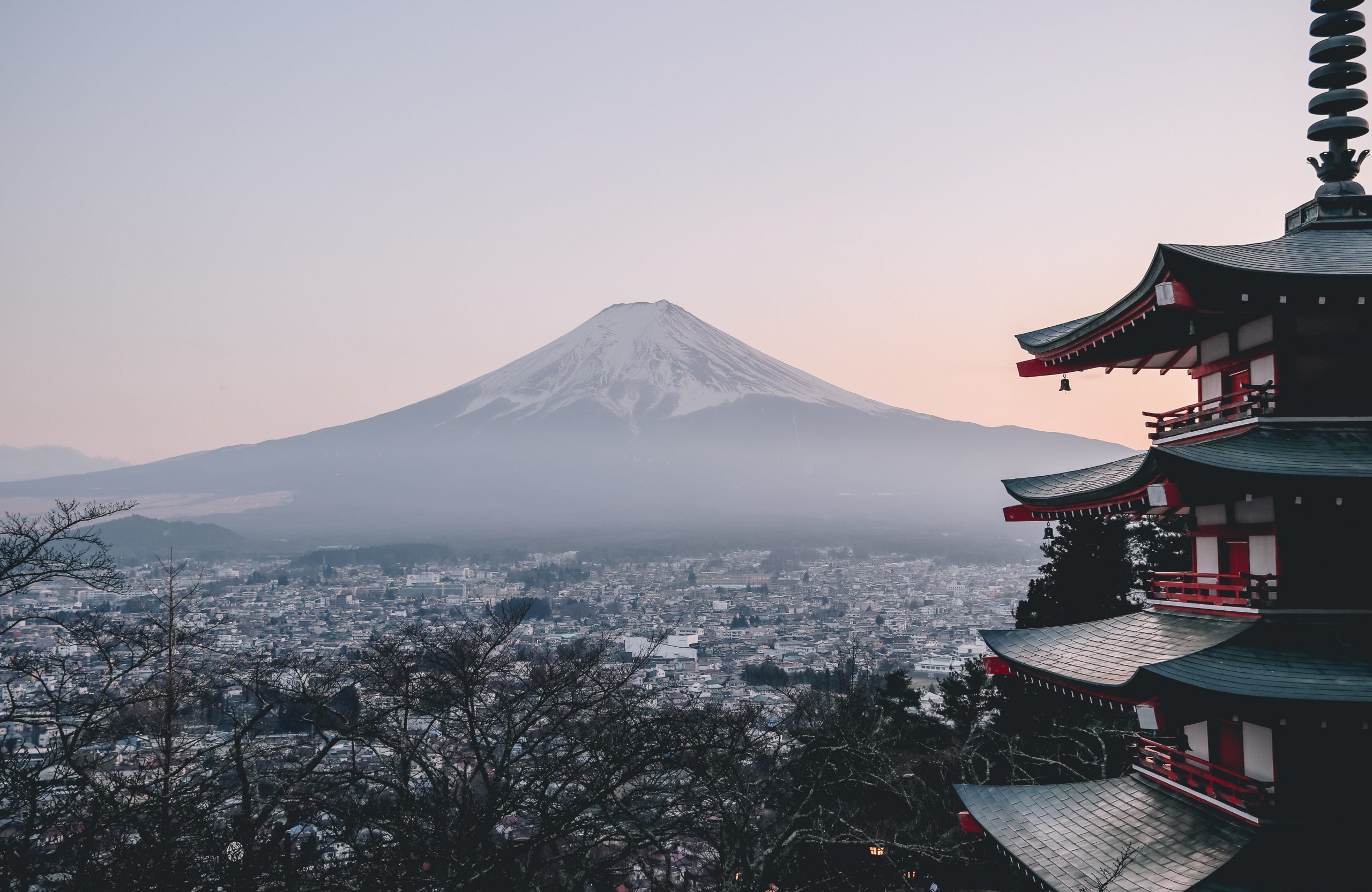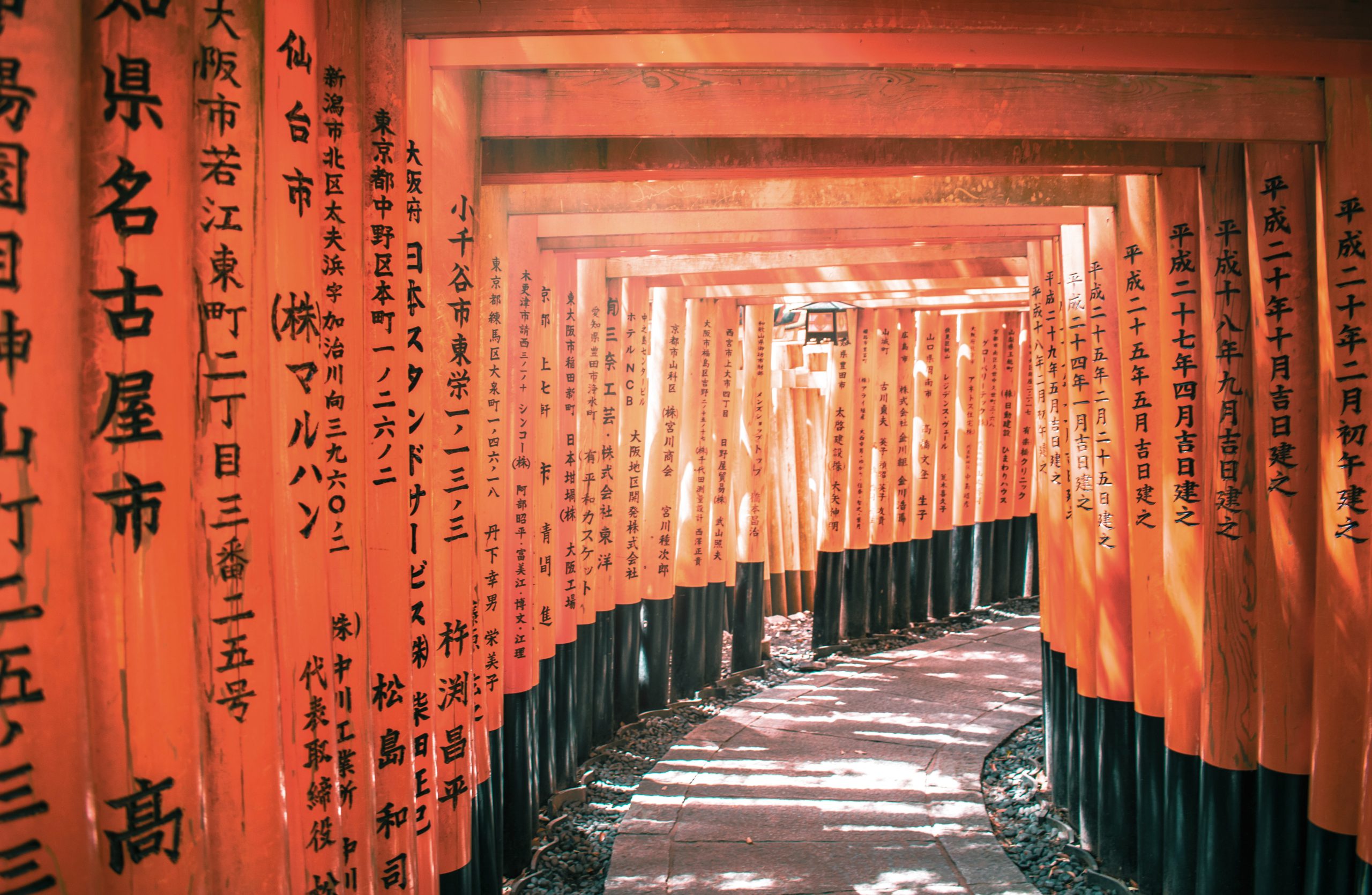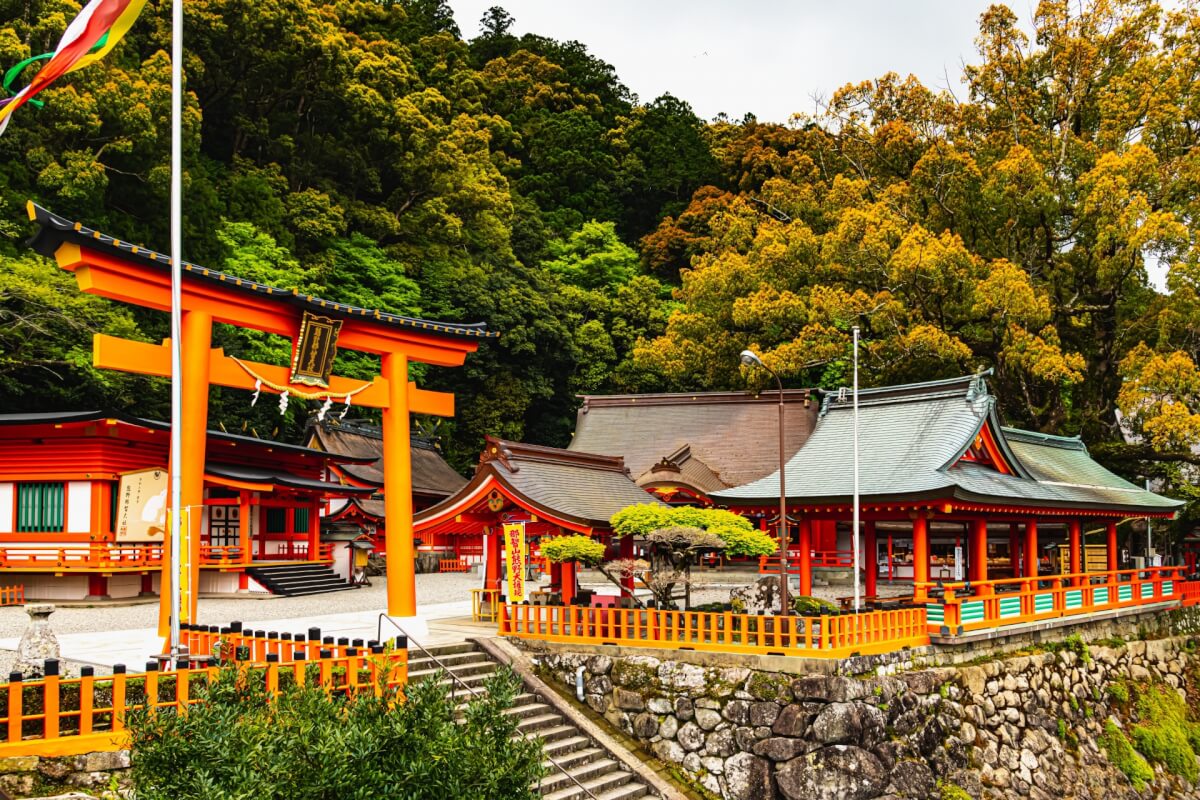What is the iconic image of Japan to you? Mount Fuji, the shrines with vermilion torii gates, or hypermodernity in Japan’s urban landscapes? In this article, we introduce some of the best photo spots where you can take iconic beautiful photos of Japan.
▼Discover a skilled photographer to capture stunning moments of your journey through Japan!

1. Kiyomizudera & Gion District
You will probably visit many historic temples, shrines, and Japanese gardens in Kyoto. Especially Kiyomizudera Temple and Gion district are two of the most famous photo spots in Kyoto.
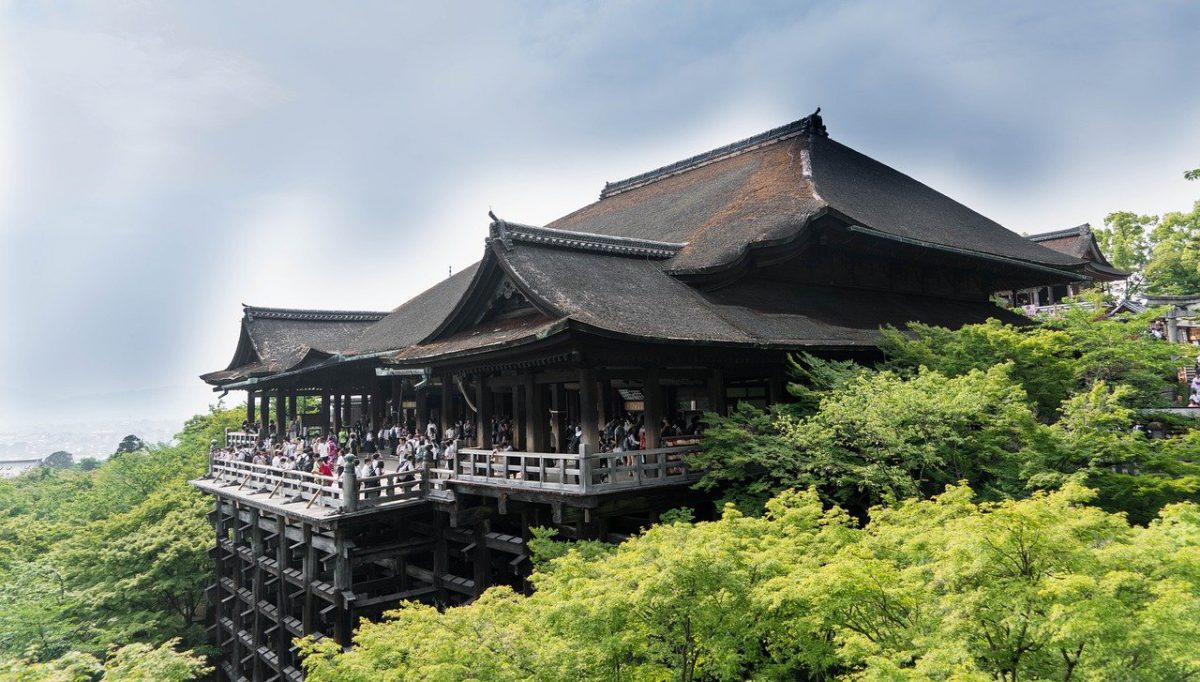
Kiyomizudera Temple is located in the eastern Higashiyama area in Kyoto, and is one of the most famous and celebrated temples in the city. The temple was founded in 778 and contains buildings from the 17th century including the main hall which was designated as a National Treasure. The most distinctive feature of the temple is its wooden stage which offers an outstanding panoramic view of Kyoto.
Access
10 minute walk from Kiyomizu-ichi Bus Stop or Gojo-zaka Bus Stop.
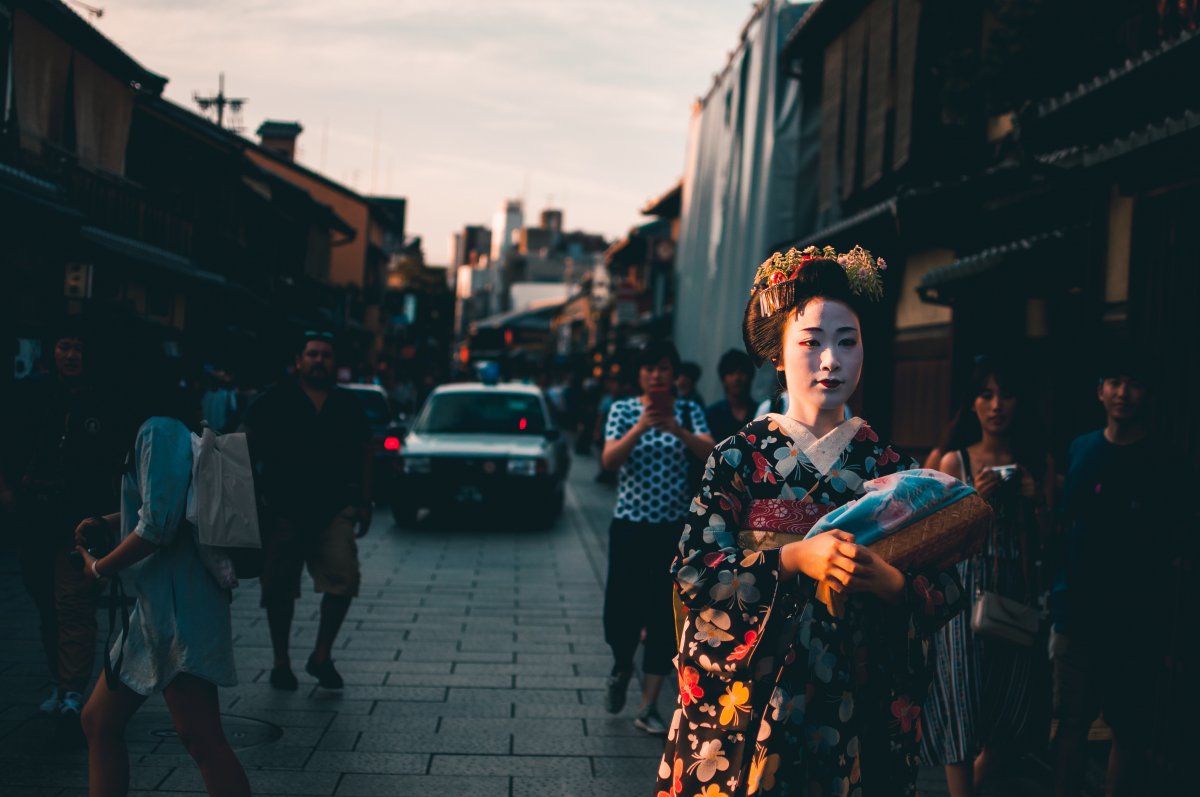
Gion is Kyoto’s most famous geisha district, located in the Higashiyama area. Some popular areas in Gion include Hanami-koji Street from Shijo Avenue to Kenninji Temple, lined with well-preserved machiya houses which are now restaurants. Another scenic part of Gion is the Shirakawa canal, a pleasant place for a walk lined by willow trees. If you are lucky, you might catch a glimpse of a geiko or maiko in this area.
Ever thought about going on a Gion (Kyoto) Walking Tour with an up close Geisha/Maiko dance performance experience? For more information click here!
Access
Take a bus number 100 or 206 from Kyoto Station, get off at Gion bus stop (about 20 minutes).
Alternatively, the closest train stations are Gion-Shijo Station on the Keihan Line and Kyoto-Kawaramachi Station on the Hankyu Line.
2. Miyajima
Formally named Itsukushima, this island is located just off the coast of the Hiroshima Prefecture in the Seto Inland Sea. Miyajima literally means ‘island of worship’, and from ancient times the island itself was worshipped as a god.
The island is famous for Itsukushima Shrine, which was originally built in 593. In 1168, Taira no Kiyomori, the most powerful man in Japan during the end of the Heian Period (794-1185), selected the island as the site of his clan’s family shrine and rebuilt Itsukushima Shrine as magnificent vermillion-lacquered buildings with a gigantic vermilion Torii gate that seemingly float in the sea during high tide. Itsukushima Shrine is registered as a World Heritage Site.
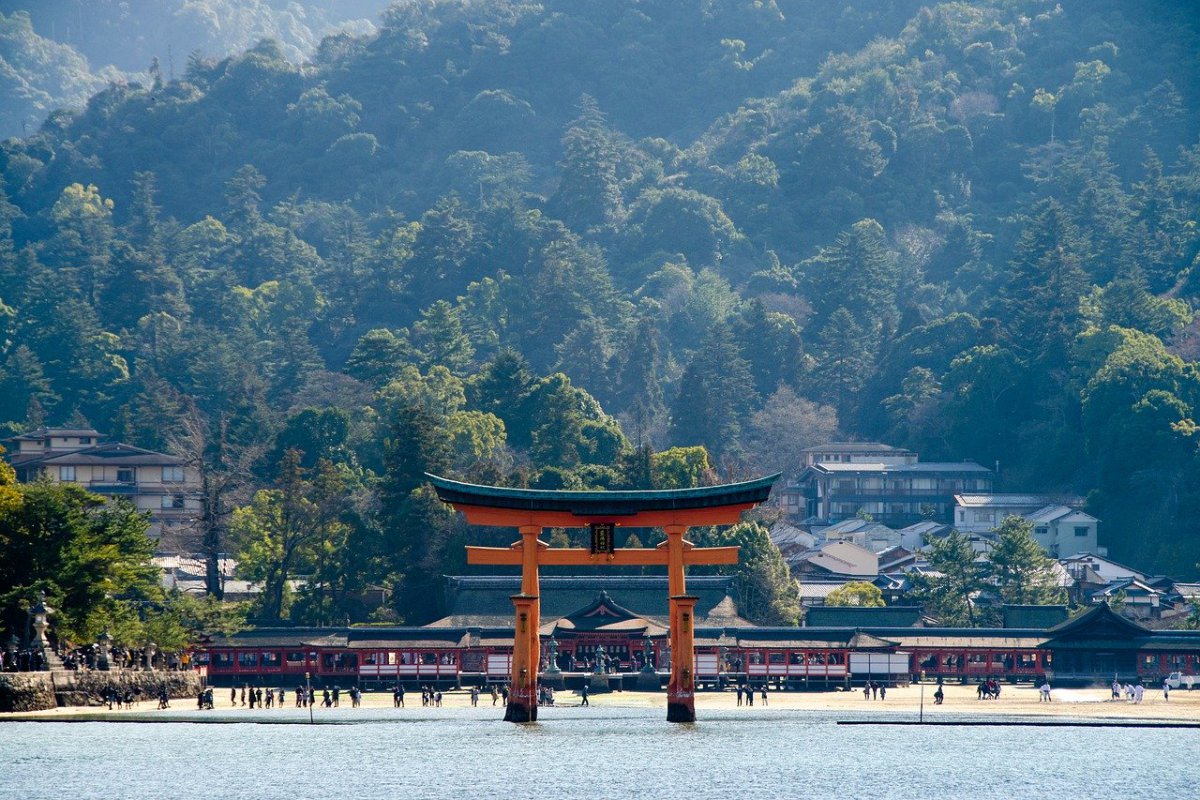
Access
To get to the ferry port from Hiroshima Station, take the JR Sanyo Line to Miyajimaguchi Station (about 25minutes). Or, take tram line number 2 from central Hiroshima bound for Miyajimaguchi.
3. Mt. Fuji
Mt. Fuji is the tallest mountain in Japan (3776m). It is one of the iconic mountains in the world for its near symmetrical shape and snow-capped summit. Mt. Fuji straddles the boundary of the Yamanashi and Shizuoka Prefectures.
Among many places where you can take beautiful pictures of Mt. Fuji, two of the most popular spots are Lake Kawaguchiko and Chureito Pagoda in Arakura Sengen Shrine.
Lake Kawaguchiko is the second largest lake in the Fuji Five Lakes region. It is an ideal resort area with lots of activities and events. A marvelous image of Mt. Fuji is reflected on the surface of the lake when the weather is clear.
The Chureito Pagoda is a five storied pagoda built in 1963 as a peace memorial in the Arakura Sengen Shrine. The pagoda is situated nearly 400 steps up the mountain from the shrine’s main buildings overlooking Fujiyoshida City and Mt. Fuji off in the distance.
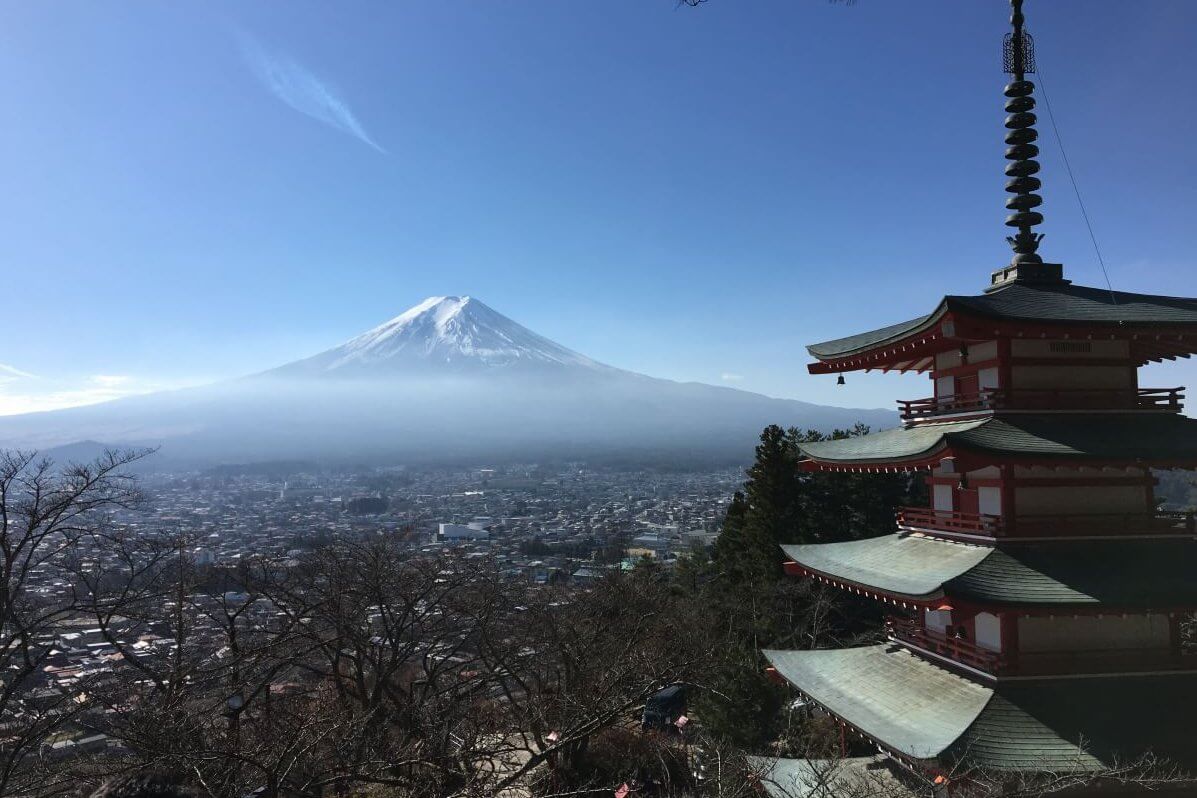
Access
Lake Kawaguchiko can be accessed by highway buses from Shinjuku Station (about 2 hours) or Tokyo Station (about 2 hours).
Arakura Sengen Shrine is a ten minute walk from Shimoyoshida Station along the Fujikyu Railway Line. Pagoda is an additional five minute walk up the hill.
- Fun Things to do around Mt.Fuji (Kawaguchiko Area)
- 12 Recommended places to see the best view of Mt.Fuji
4. Senso-ji Temple
Sensoji Temple, also known as Asakusa Kannon Temple, is a Buddhist temple located in Asakusa. Founded in 645, this is the oldest Buddhist temple in Tokyo. The current crimson building is much more modern, as it was rebuilt after being destroyed in WWII.
When approaching the temple, visitors first enter through the Kaminarimon (Thunder Gate), the outer gate of Sensoji Temple and the icon of Asakusa. Between Kaminarimon and the temple’s second gate, a shopping street known as Nakamise stretches over 200 meters.
It’s popular to wear a kimono and explore the Asakusa area since it matches the traditional ambiance of the area. Find the rental kimono experience below in Asakusa to make it come true!
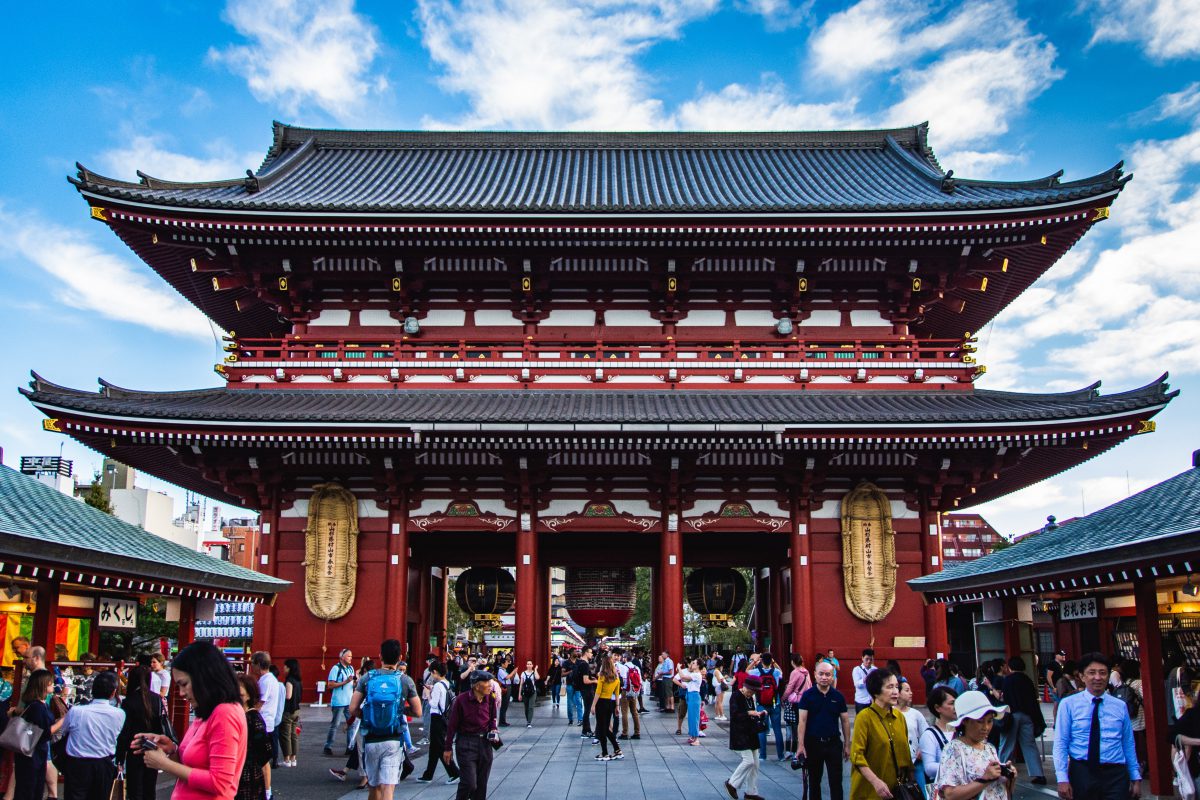
Access
5 minute walk from Asakusa Station on the Tobu Skytree Line, Ginza Metro Line, Tsukuba Express, and Asakusa Subway Line.
5. Shibuya
With the iconic Shibuya Crossing at its center, Shibuya is one of Tokyo’s most colorful and busy districts filled with endless food, drinks, shopping and entertainment options. A prominent landmark of Shibuya is the large intersection in front of the station’s Hachiko Exit. The intersection is heavily decorated by neon advertisements and giant video screens and gets flooded by pedestrians each time the crossing light turns green, making it a popular photo spot.
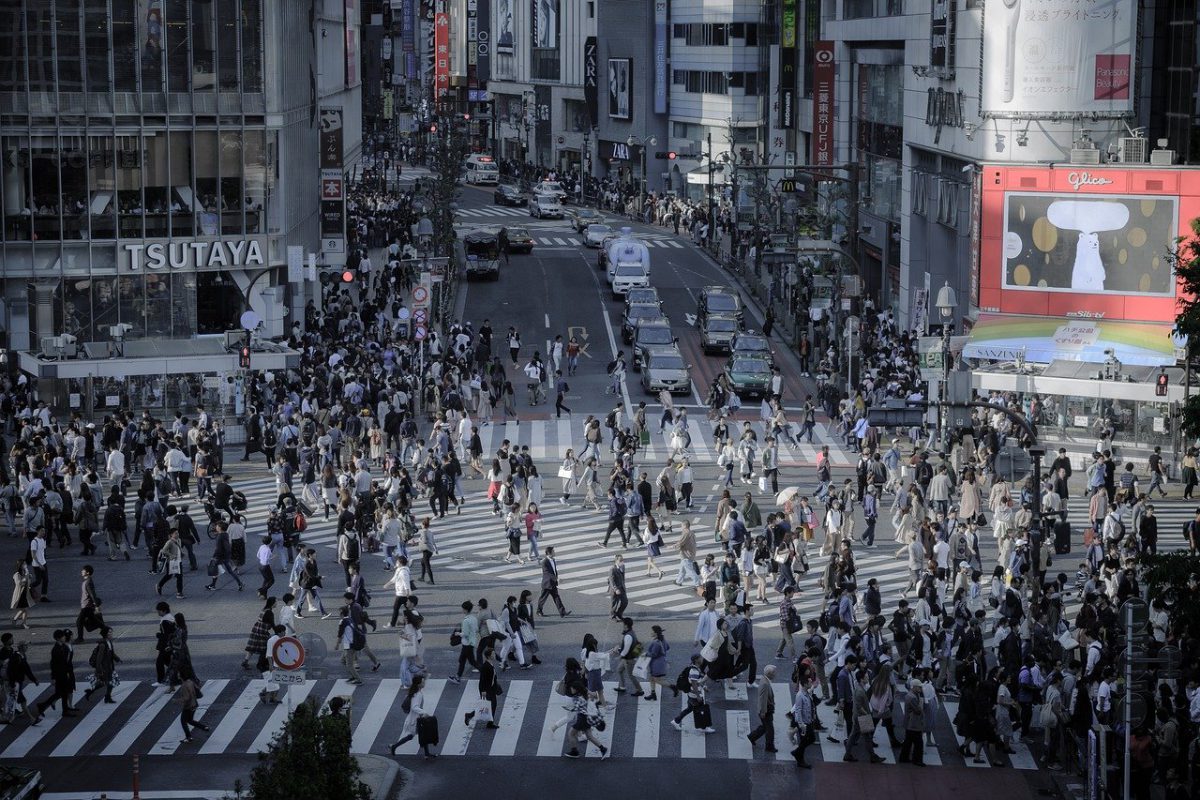
6. Hiroshima Peace Memorial Park
Before the atomic bomb on August 6 1945, the area of what is now the Peace Park was the political and commercial heart of Hiroshima city. Four years to the day after the bomb was dropped, it was decided that the area would not be redeveloped but instead devoted to peace memorial facilities.
A number of monuments have been constructed in the park over the decades since it was created. One of the park’s central features is the long tree-lined Pond of Peace leading to the cenotaph. This curved concrete monument holds the names of all the known victims of the bomb.
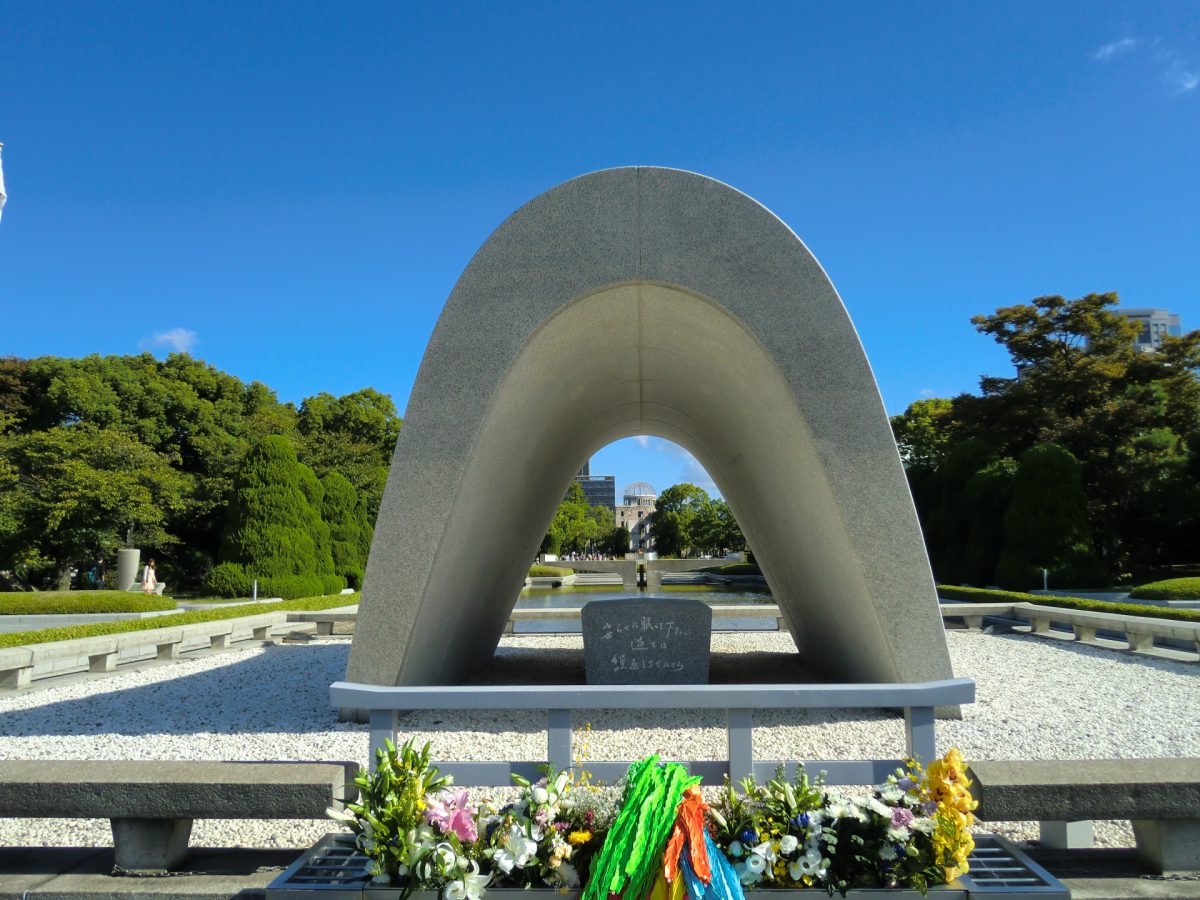
Access
From Hiroshima Station, take tram line 2 or 6 to the Genbaku-Domu Mae stop (about 15 minutes).
7. Nara
Japan’s first permanent capital was established in the year 710 at Heijo, the city now known as Nara. Around this time, Buddhism flourished and arts and architecture were at their peak. Nara’s rich heritage spans ancient monuments, sacred mountain trails and some of Japan’s oldest temples and shrines.
One of the highlights of the city is the Todaiji Temple. The temple complex was completed in 752, and now it is designated as the World Heritage site. Todaiji Temple is especially famous for housing the Daibutsu (Great Guddha), which is 15 meter tall and one of the largest bronze statues in the country. The Daibutsuden (Big Buddha Hall) is one of the biggest wooden buildings in the world although the present reconstruction of 1692 is only two thirds of the original temple hall’s size.

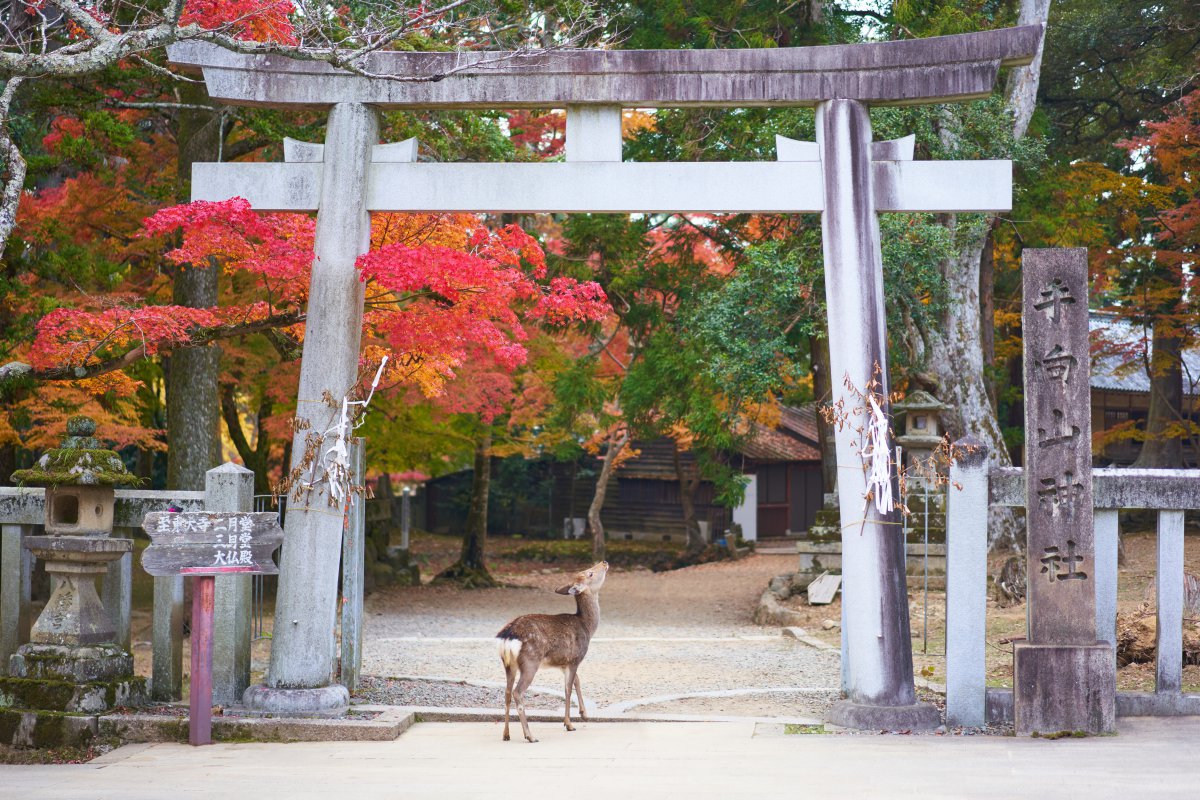
8. Noboribetsu
Noboribetsu Onsen is the most famous hot spring resort in the Hokkaido prefecture. There are many ryokan (traditional inn) and hotels with hot spring baths and some of them offer drop-in onsen for non-staying guests.
Besides hot springs, the area offers several tourist attractions including Jigokudani (meaning “hell valley”) which displays hot steam vents, sulfurous steams and other volcanic activity.
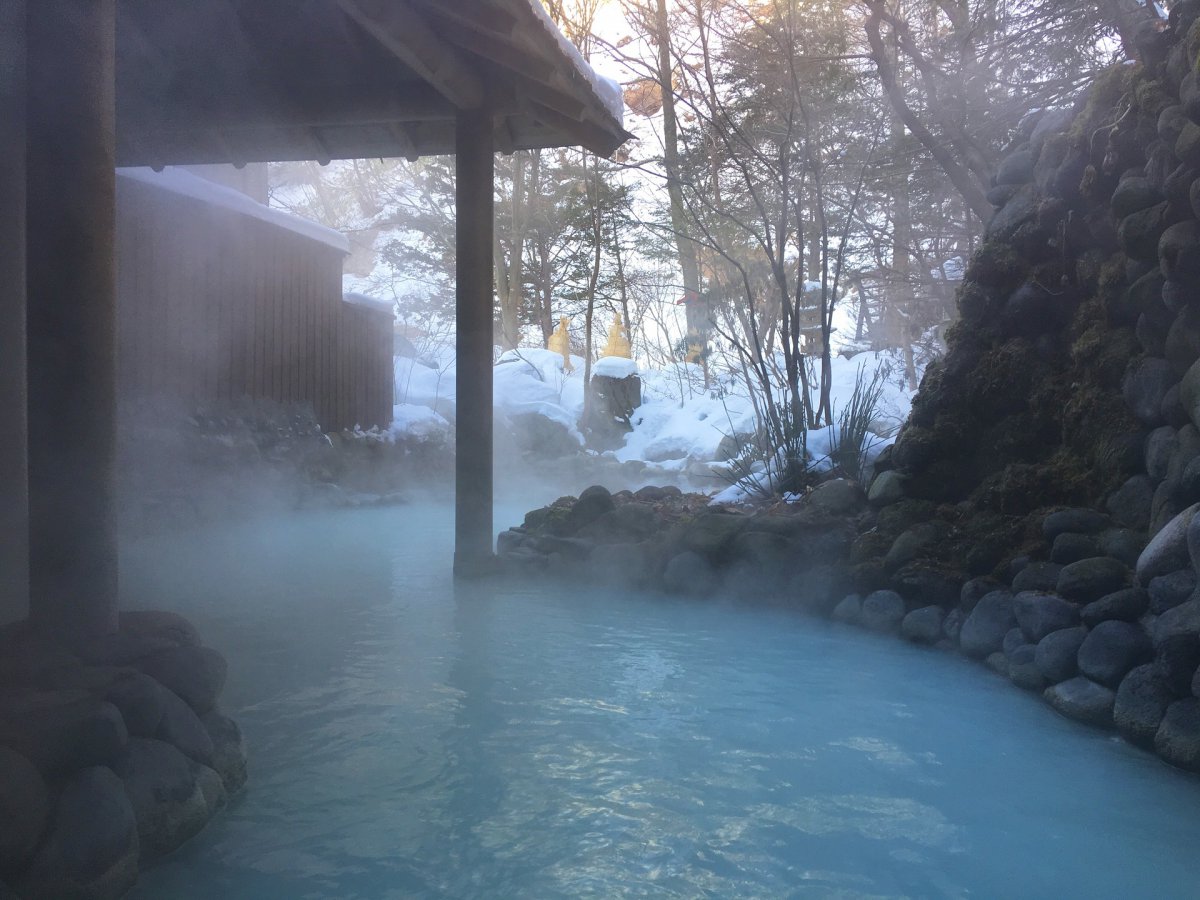
Access
There are express busses from JR Sapporo Station (about 1 hour) and from New Chitose Airport (about 1 hour) which go directly to Noboribetsu Onsen.
9. Osaka Castle
Osaka Castle, originally constructed in 1598 by Toyotomi Hideyoshi, was the largest castle at the time. However, a few years after Hideyoshi’s death, Osaka Castle was destroyed by Tokugawa troops, and was rebuilt by Tokugawa Hidetada in the 1620s. Today we can see some architectures such as gates and storehouses from the Edo period, however the main building of the castle tower was built in 1931 and renovated in 1997. Inside the castle, there is a museum about the history of the castle and Toyotomi Hideyoshi. On the 8th floor of the building, you can enjoy a panoramic view of Osaka city.
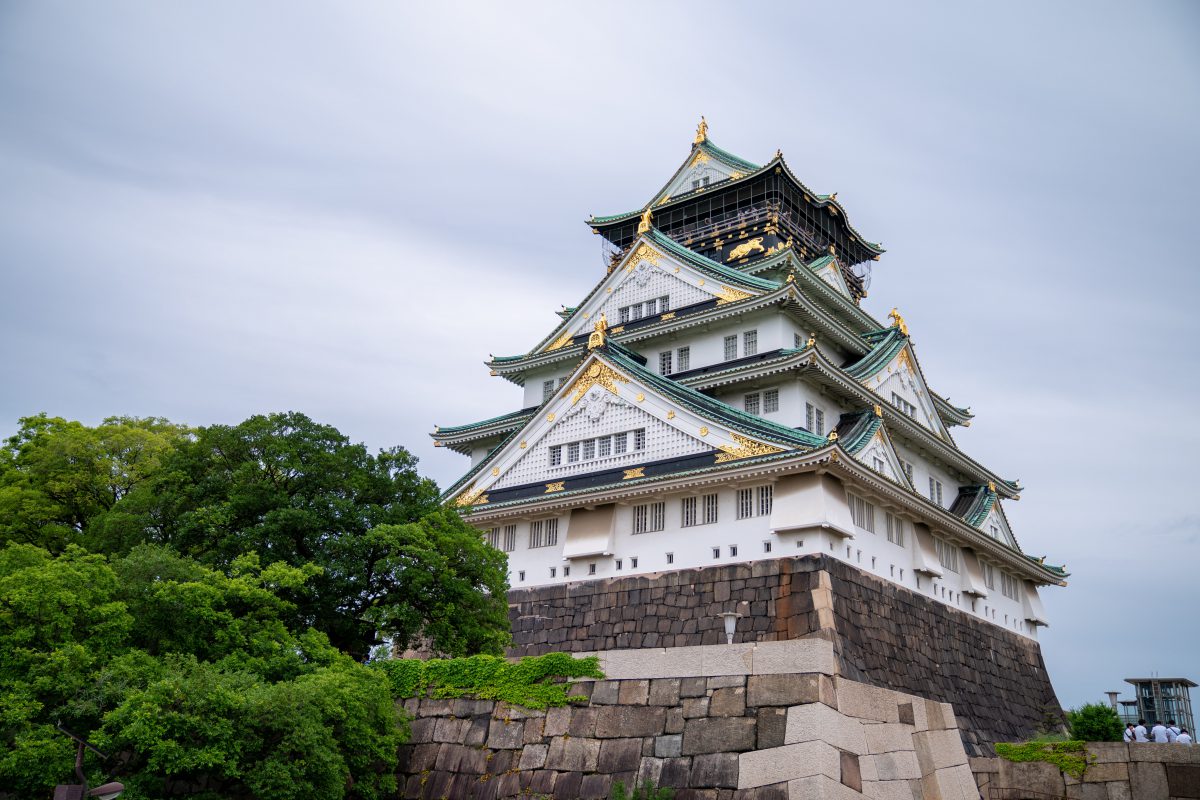
Access
18 minute walk from Tanimachi Yonchome Station on Tanimachi and Chuo subway line
18 minute walk from Osakajo Koen Station on JR Kanjo Line (Loop Line)
10. Hitachi Seaside Park
This large park, located near Mito City in the Ibaraki Prefecture, features a wide variety of seasonal flowers and greenery along with a small amusement park, several cycling and walking trails. The most popular season for the park is during late April until early May when approximately 4.5 million nemophila flowers cover the entire park, transforming it into a sea of blue petals. In addition to the nemophila season, the park is filled with seasonal flowers especially from spring to autumn.
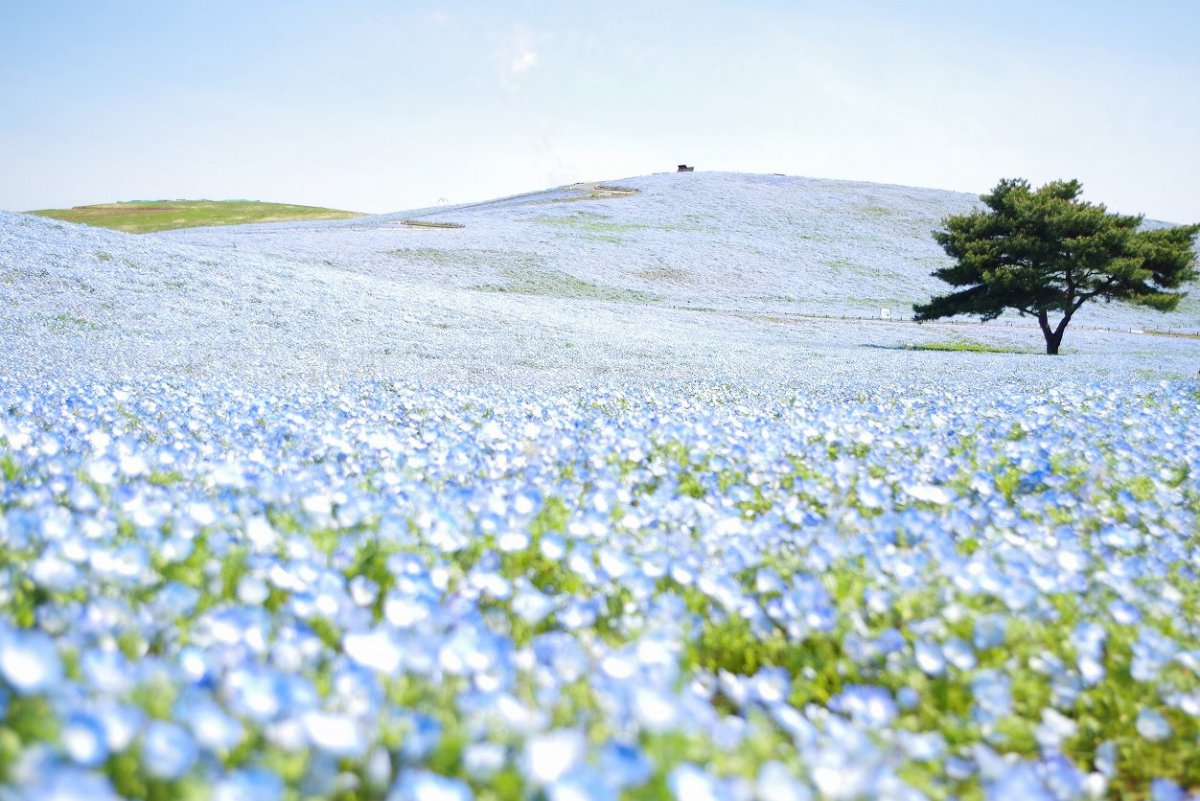
Access
From Mito Station, take the JR Joban Line to Katsuta Station (5 minutes). From Katsuta Station, take a bus to Kaihin Koen Nishiguchi bus stop (20 – 30 minutes).
11. Shirakawa
Shirakawa-go (Shirakawa Village) is a Japanese mountain settlement in what was once considered a wild and unexplored region. This quaint little village nestled in the Japanese Alps has charmed many tourists with the way it has preserved most of its traditional way of life. Declared a UNESCO world heritage site in 1995, they are famous for the gassho-zukuri houses, some of which are more than 250 years old.
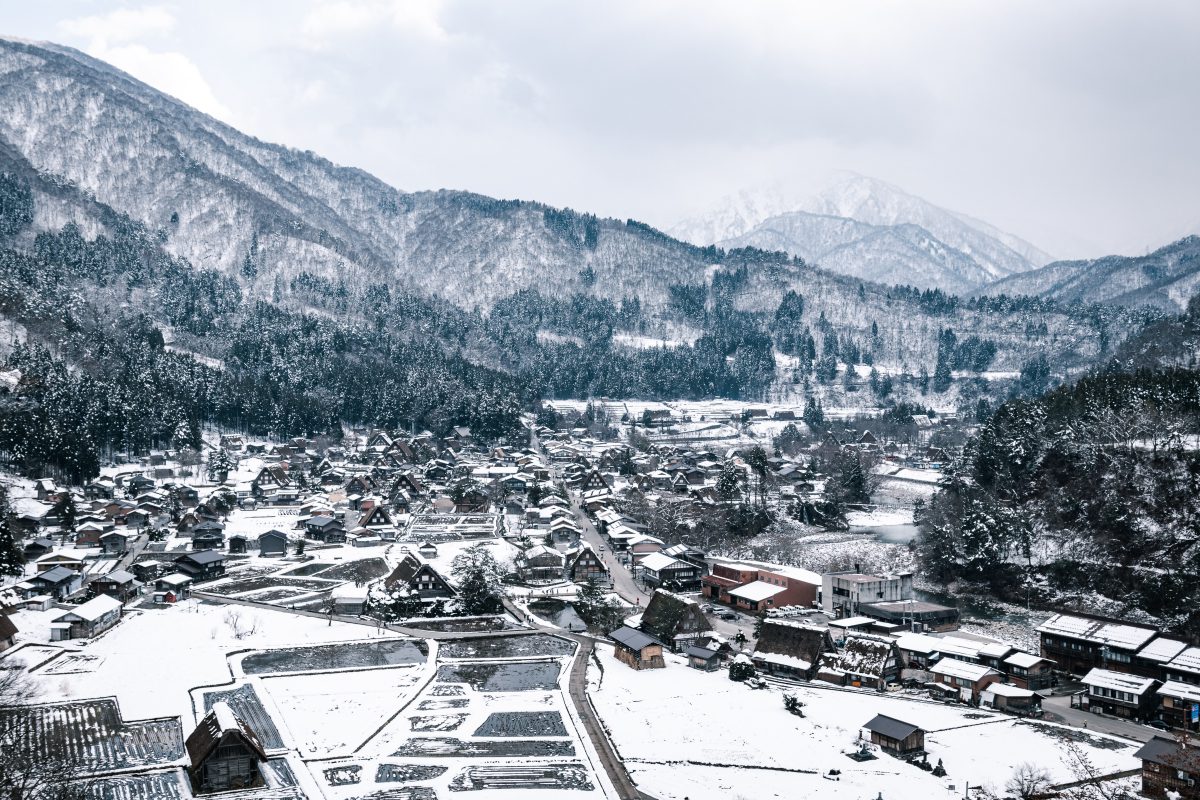
Access
Take Hokuriku Shinkansen from Tokyo Station to Toyama Station (about 130 to 170 hours), and transfer to the bus to Shirakawa-go (1.5 hours).
12. No. 1 Tadami Bridge Viewpoint
No.1 Tadami Bridge or Daiichi Tadami Bridge is located in the western region of Aizu in Fukushima Prefecture. A panoramic view of the arched metal bridge stretches over Tadami River. The iconic image of this place is a green and white train crossing the bridge against a snowy white landscape, with the scenery reflected in the still waters below.
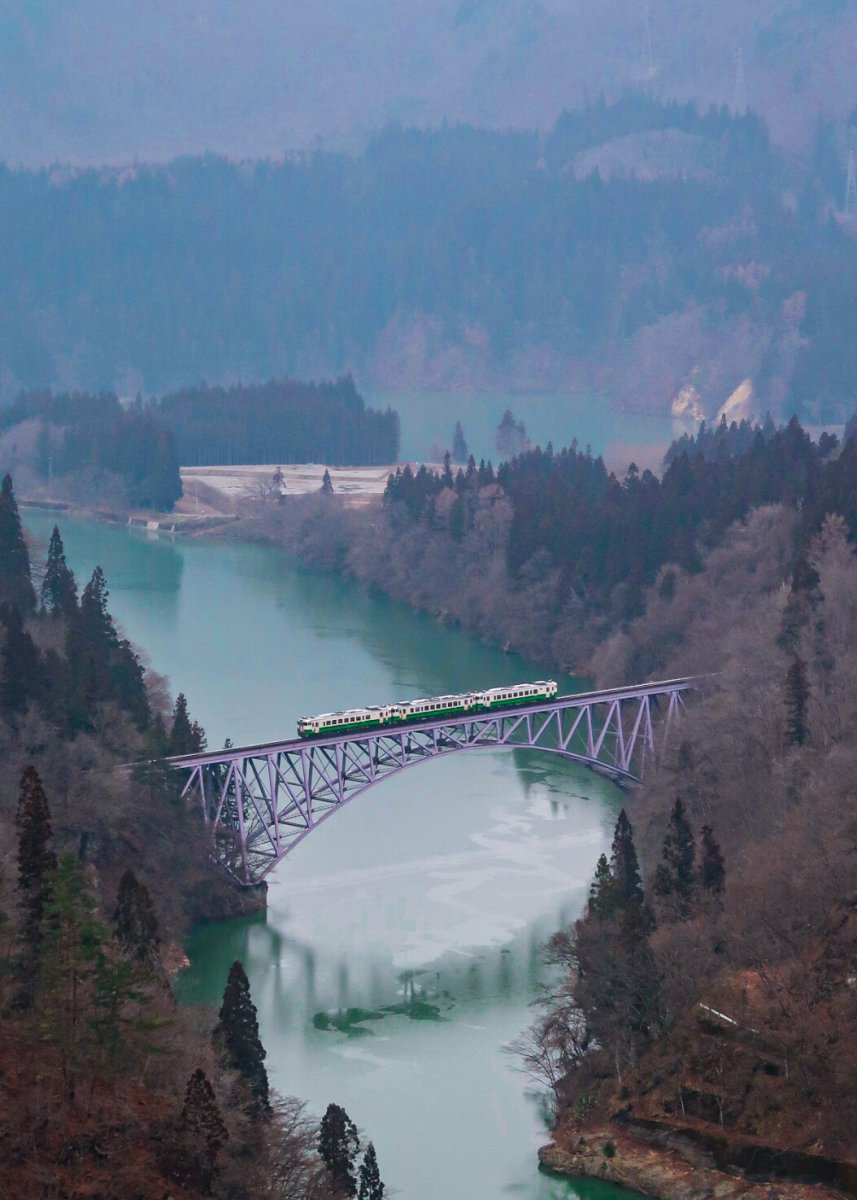
Access
From JR Aizu-Wakamatsu Station, take JR Tadami Line, get off at Aizu-Miyashita Station (about 1.5 hours). From Aizu-Miyashita Station, take a bus to Michi-no-eki Mishima-juku (about 10 minutes).
Japan Wonder Travel Tours
On our tour, a knowledgeable guide will take you to the best spots to enjoy the area. You can listen to the background stories of the area, try some foods and learn some Japanese culture.
- Tokyo 1–Day Highlights Private Walking Tour (8 Hours)
- Kyoto Private Full Day Walking Tour [Customizable]
- Tokyo Fish Market Tour @Tsukiji
- Tokyo Sushi Making Experience + Tsukiji Fish Market explore Tour
In Japan, there are various photo spots from busy urban landscapes to great nature to traditional townscape. What is your favorite image?
Follow us on Instagram or Facebook for more travel inspiration. Or tag us to get featured!
Happy traveling!
Stay informed of the best travel tips to Japan, the most exciting things to do and see, and the top experiences to have with the Japan Wonder Travel Newsletter. Every week we will introduce you to our latest content.
Other articles you might like

